Lymphedema
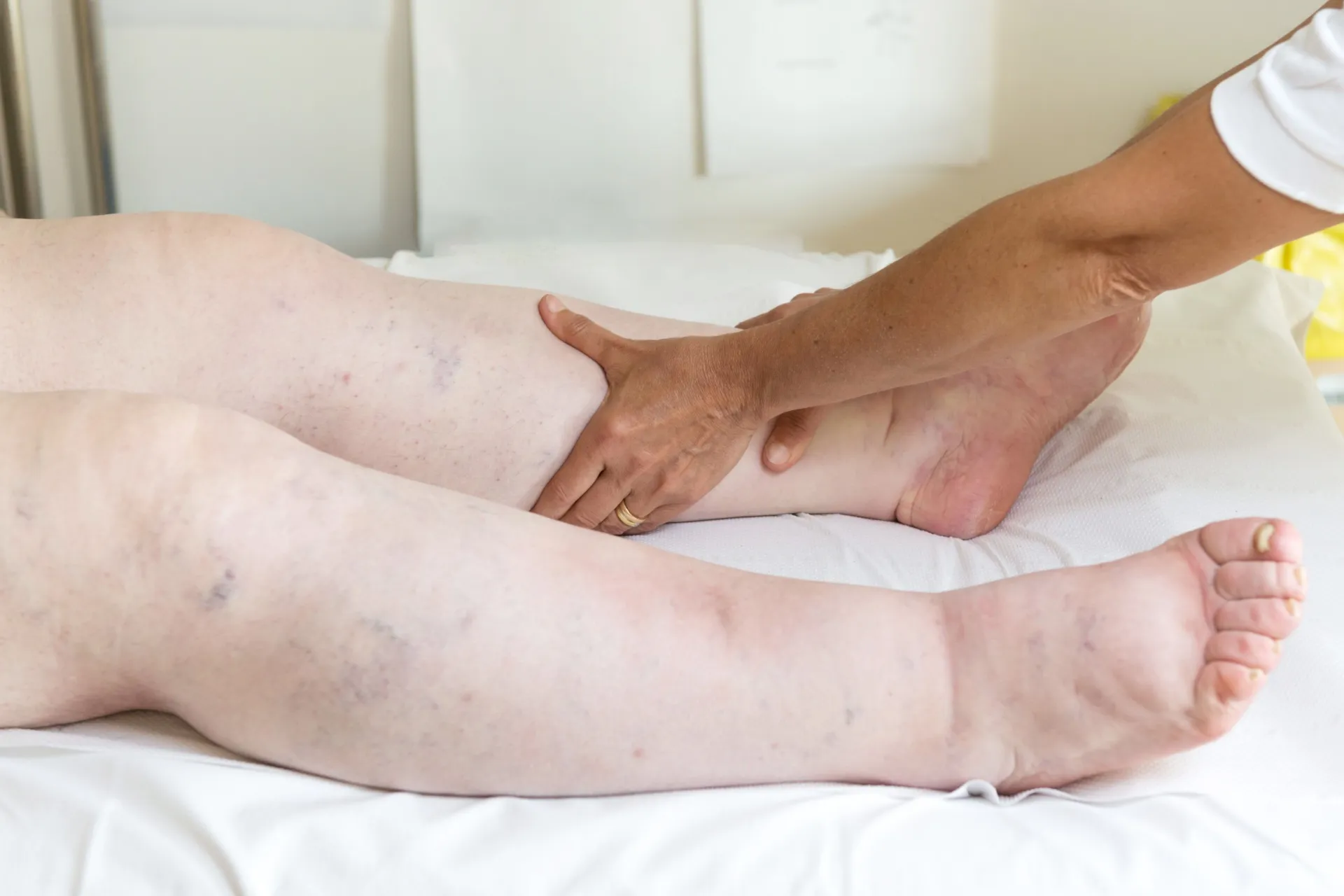
When persistent swelling of the legs is noticed, you may be dealing with lymphedema. When left untreated, this chronic condition may worsen, further impacting your daily life. Associated symptoms may include pain, heaviness and skin changes. Early evaluation and treatment are important for controlling, and even improving, the swelling and other symptoms.
If you suspect you may be experiencing lymphedema symptoms or a venous disorder, Dr. Louis G. Prevosti of Prevosti Vein Center can help. Bringing more than 30 years of specialized cardiovascular experience to his Canton practice, Dr. Prevosti exclusively focuses on the diagnosis and treatment of vein disease and lymphedema.
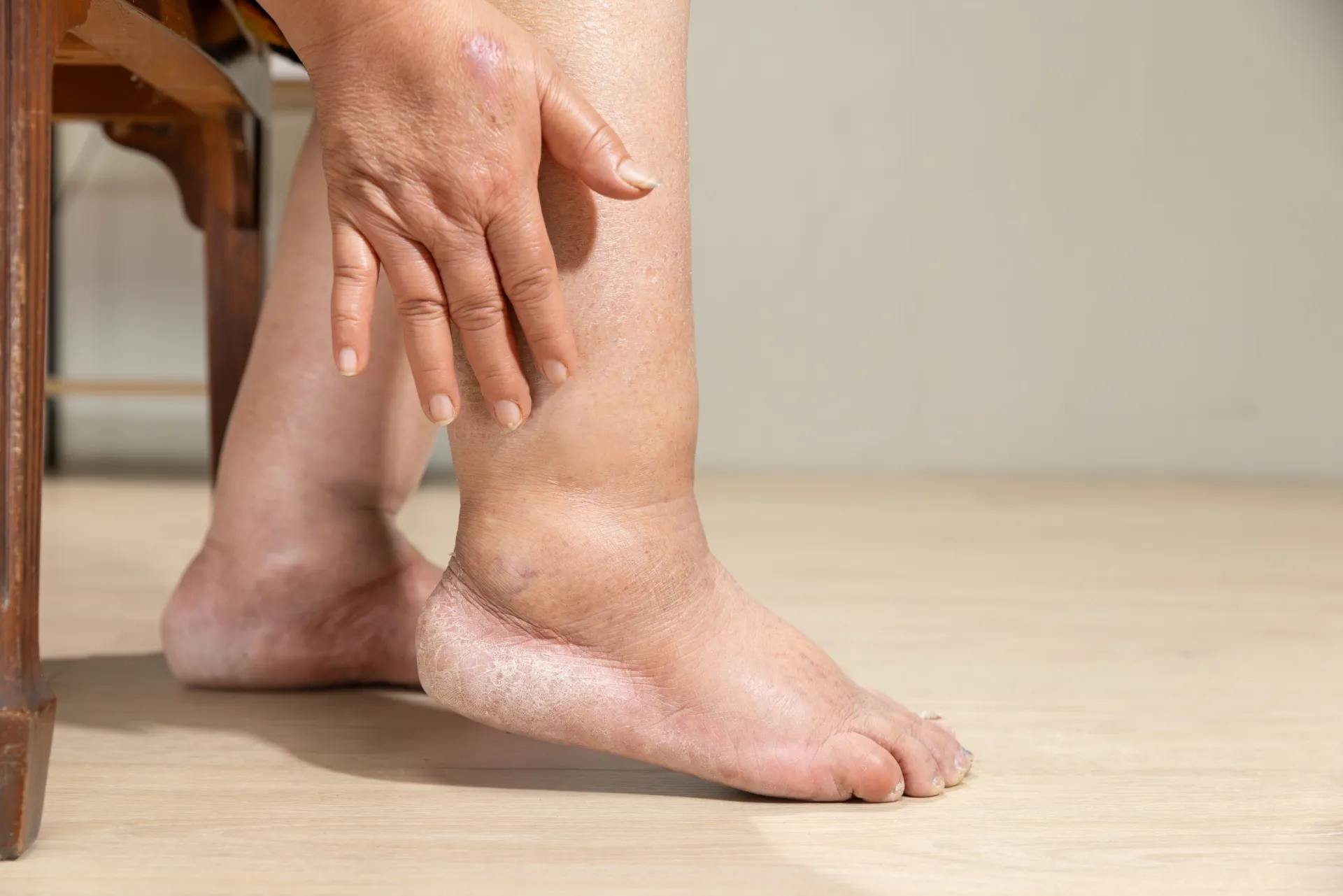
What Is Lymphedema?
The lymphatic drainage system is a network of microscopic channels, small vessels and lymph nodes that perform several key functions in the body. These include the collection and return of interstitial fluid (the fluid in between cells in tissue) to the bloodstream, immune processes, fat absorption and more. When the lymphatic system is not able to do its job efficiently, swelling (edema) often results.
There are two types of lymphedema: primary and secondary. Primary lymphedema is when the lymphatic drainage system fails on its own (intrinsic dysfunction). There is no external cause of the failure. A person may be born with a poorly functioning lymphatic drainage system (congenital), a hereditary trait, or it may occur for no known reason (idiopathic). Idiopathic lymphedema is one of the most common types of lymphedema in the U.S. Primary lymphedema may come on at any age but commonly develops in patients in their 20s and 30s. This is called lymphedema praecox. Lymphedema that develops later in life is called lymphedema tarda.
Secondary lymphedema is caused by an outside source, external to the lymphatic system itself. Disease, illness, injury, surgery, cancer, infection and venous disorders can cause secondary lymphedema. Lymphedema due to venous insufficiency is quite common and is called phlebolymphedema. Swelling due to a deep venous thrombosis (blood clot) is called post-thrombotic syndrome.
Partial List of Causes of Lymphedema of Legs
- Venous insufficiency (phlebolymphedema)
- Idiopathic (no known reason)
- Trauma or injury
- Surgery
- Illness
- Infection (bacterial or parasitic)
- Cancer
- Cancer treatment, including surgery and radiation therapy
- Autoimmune and connective tissue disorders
- Post-thrombotic syndrome due to blood clots
Dr. Prevosti's thorough evaluation process helps identify which factors may be contributing to your lymphedema, allowing for more targeted treatment approaches.
What Can I Do at Home to Help Lymphedema?
In most cases, there is no cure for lymphedema. The focus of therapy is to correct any treatable disorders, such as venous insufficiency, and manage symptoms with professional guidance. There are some things you can do at home to try to improve your swelling and discomfort.
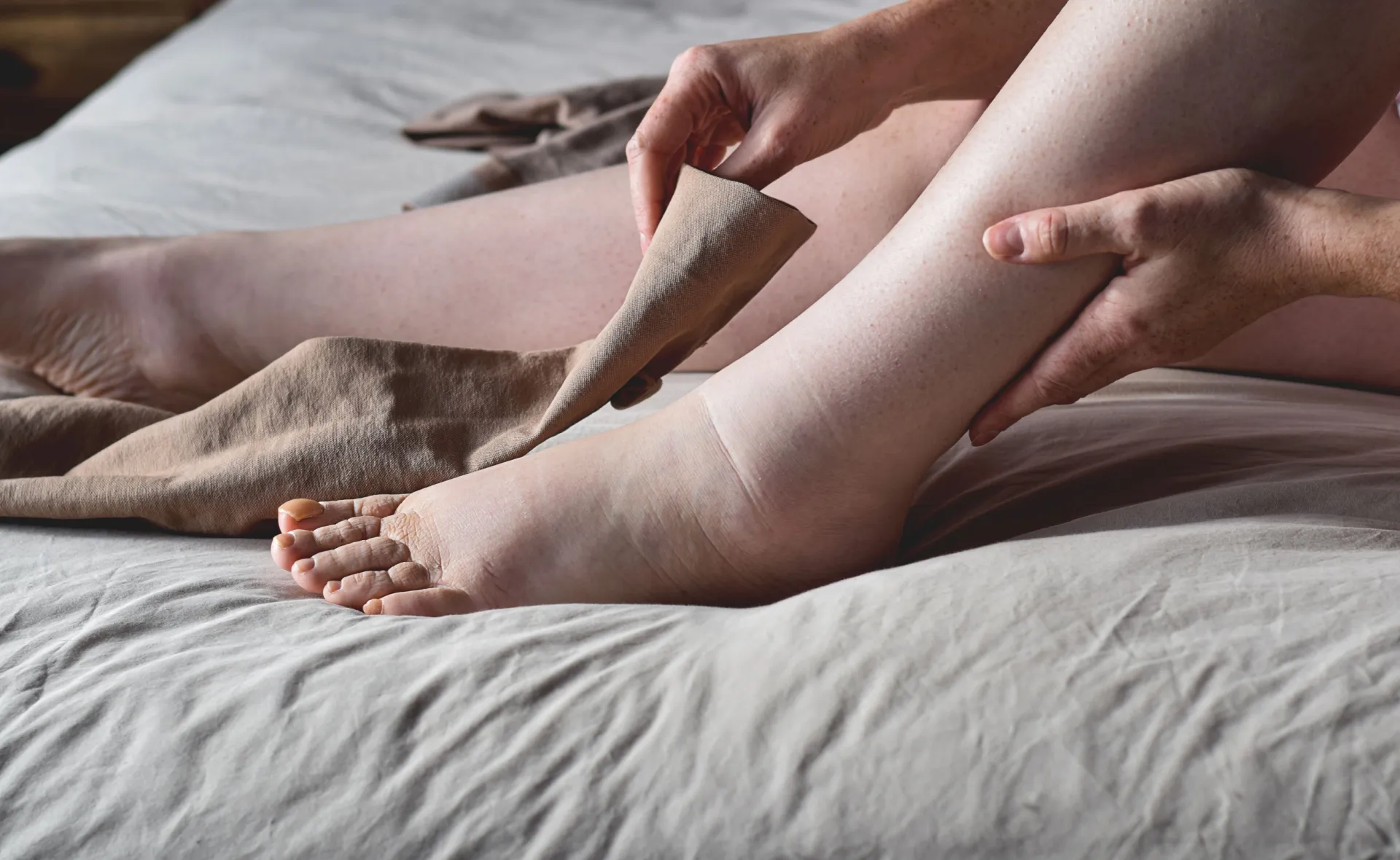
Compression Therapy
Compression therapy is the foundation of lymphedema therapy. Medical-grade compression garments that apply graduated pressure, fitted by a trained professional, are best. Usually 20-30 mmHg compression strength is initiated and then, if needed, increased to 30-40 mmHg. In most cases of mild to moderate lymphedema, the compression stocking is taken off at night to sleep. Compression garments are also important when traveling, as immobility worsens swelling due to lymphedema and venous insufficiency.
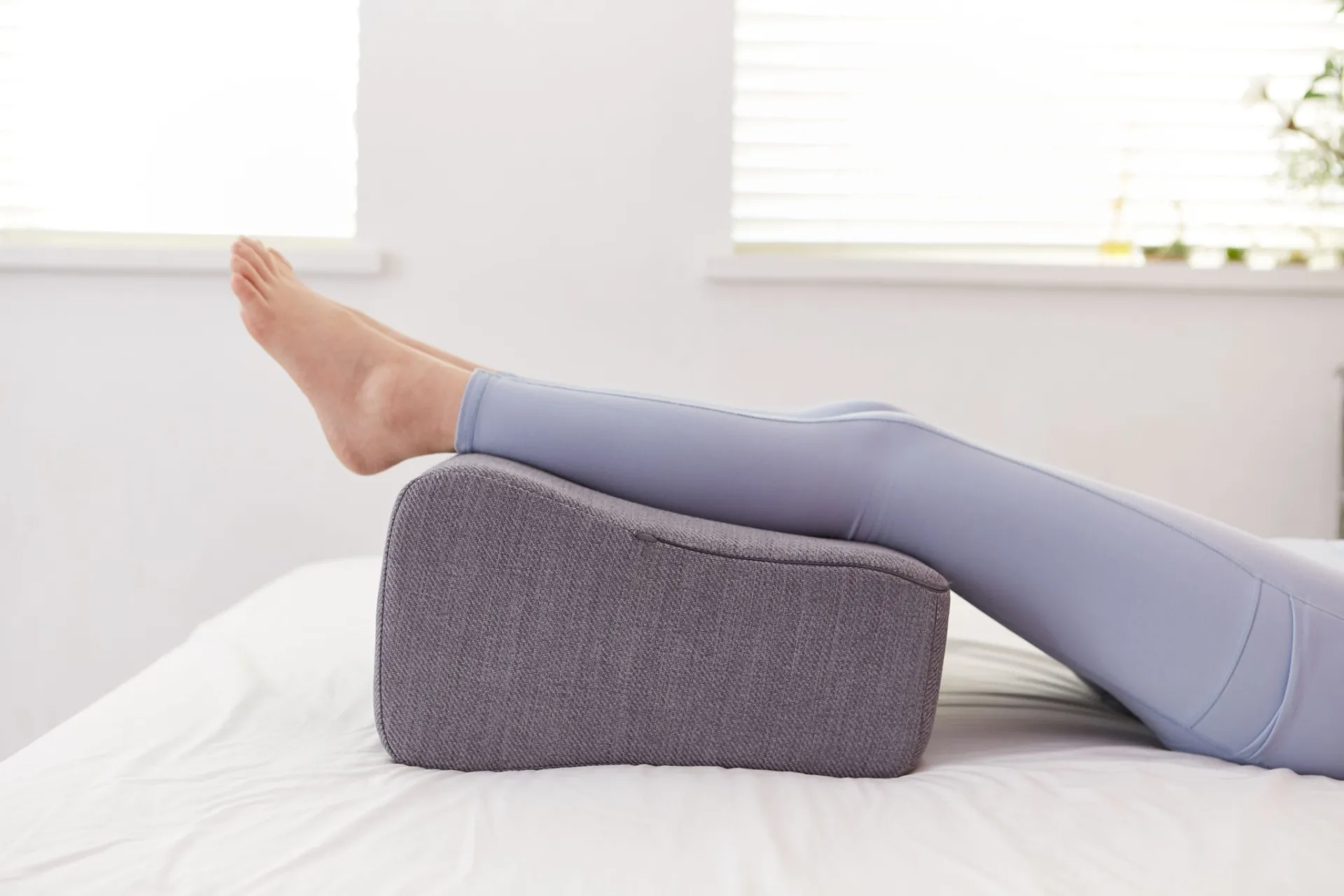
Elevation
The simple act of elevating the legs several times a day can help control swelling. If you are watching TV or reading, try laying down rather than sitting up. Adding a pillow under your legs is even better, but just the simple act of being horizontal will help. It is OK to elevate your head or upper body to make yourself comfortable. Using a recliner chair is also a good option.

Walking, Exercise and Movement
Walking, water aerobics, and other gentle exercises can assist with lymphatic drainage by activating muscles near the affected area(s). When spending hours at a desk or computer, try to get up periodically and walk for a few minutes. Even marching in place can be helpful. Calf raises while sitting will activate the calf muscles. If working from home, try shifting to a sofa with a laptop and raise your legs.
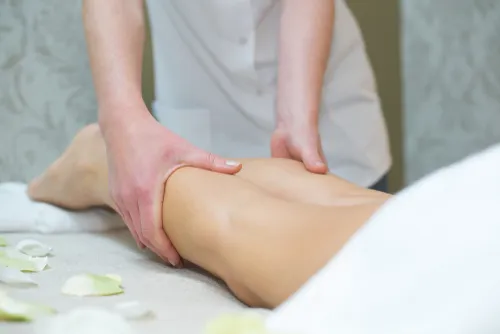
Manual Lymphatic Drainage Massage
Manual lymphatic drainage massage is a well-established lymphedema treatment that can significantly improve swelling and discomfort. However, it’s essential that proper technique is utilized. Seek out a massage therapist or physical therapist who is certified in lymphatic massage techniques. You can learn these techniques and apply them yourself at home.

Skin Care
Lymphedema is associated with a range of skin issues, including a higher risk of skin infections, abnormal skin texture, redness and more. Maintaining good skin hygiene is a vital step every patient can take to minimize these potential issues. Regularly inspecting the skin, keeping the skin clean, moisturizing, and avoiding scratches or insect bites to the best of your ability can prevent future complications.
How does Prevosti Vein Center Support with Lymphedema?
Dr. Prevosti will work to identify the cause of the lymphedema. Medical history, physical examination and venous ultrasound examination form the basis of the evaluation. If the swelling is due to venous insufficiency, a treatment plan to correct this disorder will be created. The correct quality, size and strength compression garments will be ordered. Lymphedema physical therapy by a certified lymphedema physical therapist may be ordered. In some cases, a “lymph pump” may be ordered. Dr. Prevosti will follow the progress of the treatment plan with periodic follow-up visits.
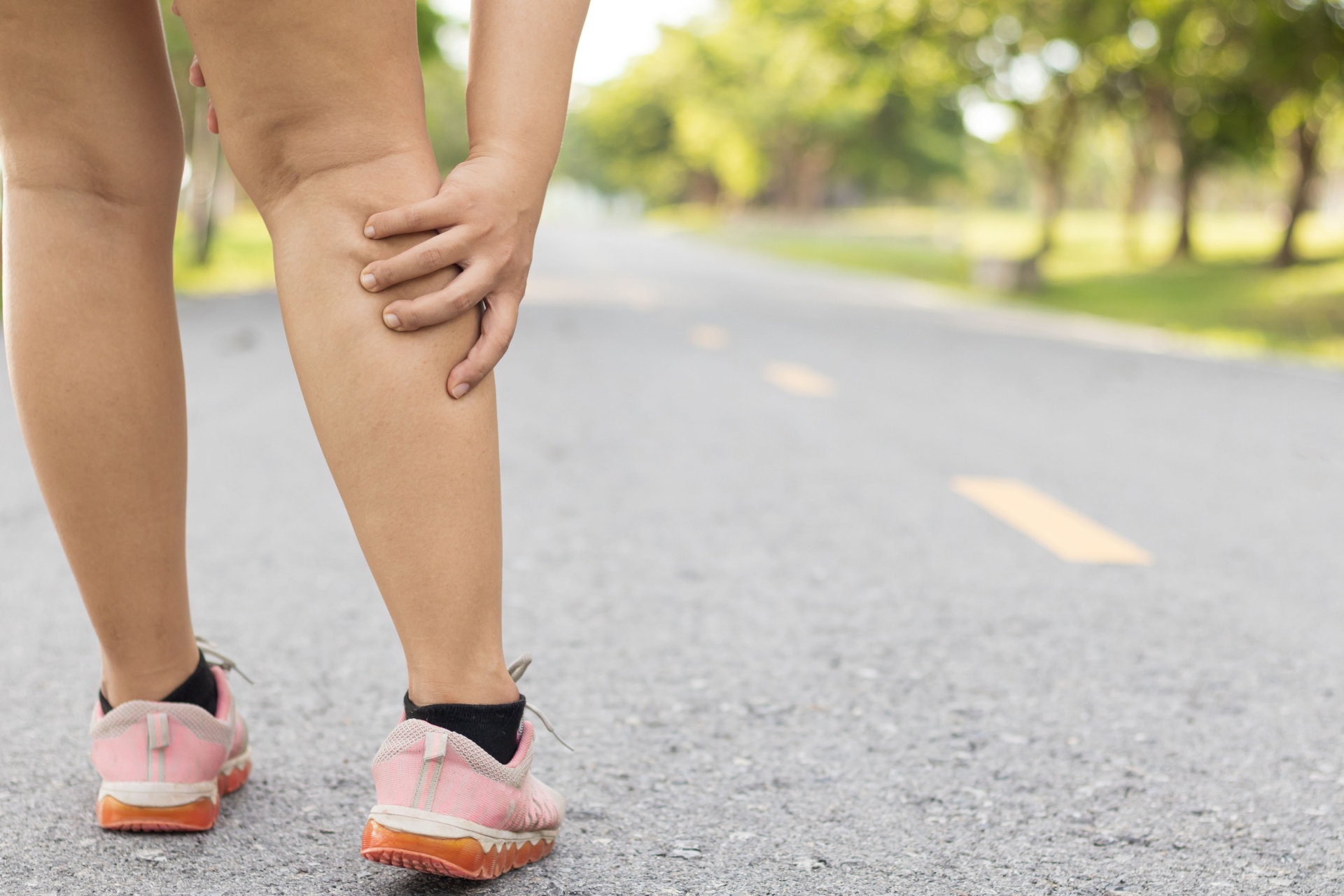
Experience Specialized Lymphedema Care at Prevosti Vein Center
Living comfortably with lymphedema requires a consistent, professionally supervised approach that adapts to changes in your symptoms. Dr. Prevosti’s exclusive focus on venous disorders and lymphedema management means you receive specialized attention from a provider who understands the complexities of lymphatic system dysfunction and how this affects your daily life.
Schedule your consultation today to regain control of your comfort and mobility with expert lymphedema treatment.